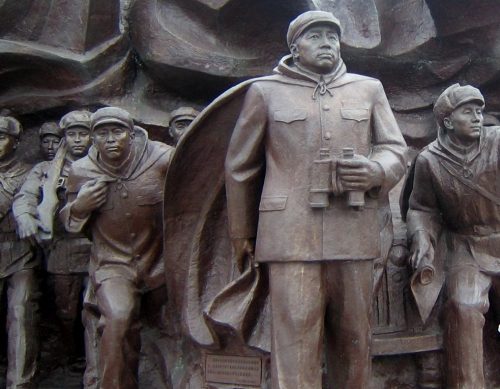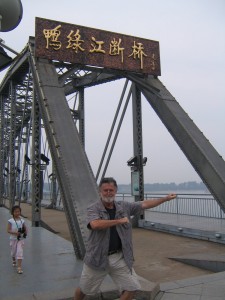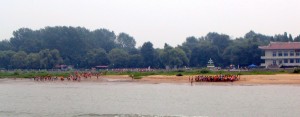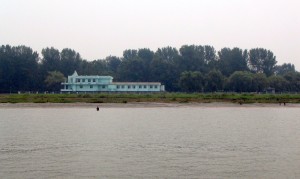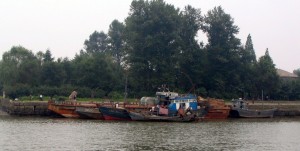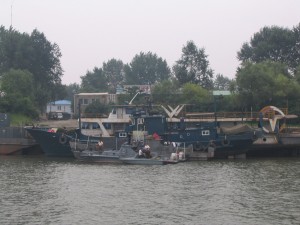North Korea: the Edge.
Brian Hennessy. An Australian in China. 2008
The Yalu River Bridge. A famous bridge which was bombed by the USA during the Korean War. A Chinese army crossed it to attack UN ground troops in 1950. On the Chinese side there is a monument to General Peng De Huai who lead that campaign. A principled, independent-thinking man who defied Chairman Mao during the Cultural Revolution, and who had his career ruined as a result. Now rehabilitated in bronze, he stands in front of his men, looking across the bridge. A face so determined and strong, looking like he would cross it again if he had to.
North Korea: the edge
______________________________________________________________
I had been visiting friends in Shenyang in the province of Liaoning in the industrial north eastern region known as Dongbei. This area is home to the Manchu people who invaded China in the late sixteenth century and established the last of the Chinese dynasties – the Qing Dynasty which collapsed in 1911.
It is also home to many refugees or illegal immigrants (depending on your politics) from the neighbouring North Korean Democratic Peoples Republic. They swim across the Yalu River border seeking food and freedom. Perhaps the only folk in the world who look for freedom in the Peoples Republic of China.
My friends had driven me to the Port of Dandong to see the famous Yalu River Bridge. During the Korean War in the 1950s, a Chinese army crossed it to do battle with UN ground troops. The US Airforce bombed it, and its damaged structure remains in place today. A new bridge, not unlike the old one, has been constructed beside it.
North Korea: so near, and yet so far. Chinese tourists bemused and mystified by by this socio-political anachronism across the river. Jostling for boat-tickets on a rusty vessel tied to a pier next to the bridge. Everybody wanting to get a closer closer look at the edge of this strange society. Me included.
This tub will take us to within 50 metres of it. No closer. Trucks on the new bridge (the old one is missing a few spans courtesy of the USAF), rumbling and clanking their way across the Yalu River divide. Containers and freezers. Carrying food perhaps?
How come this small Stalinist society can cause so much trouble for everybody? Holding everyone over a barrel (including the Chinese Government). The Chinese tourists I speak to are mystified by such blackmailing, bullying behaviour. They remember their own bad old days, and wonder aloud why North Korea remains such a brutally repressive regime.
Chinese coast-guard vessels moored to pontoon beside a floating gin-palace on the decadent side of the river. They patrol the river at night. Protecting the motherland against refugees from Kim Jong Ill’s socialist paradise who are looking for a decent feed in capitalist China.
It is much less embarrassing for China to call these folk economic rather than political refugees. No matter. There is a linguistic way around every ideological conundrum. On this side of the river there is “Socialism with Chinese characteristics” (Go ask Zhang Zemin what this means. He was responsible this slogan), and on the other side there is the Democratic Peoples Republic of North Korea.
My God, these comrades have a way with words. The Democratic Peoples Republic of Korea, or DPRK. Over there. Just across the river.

